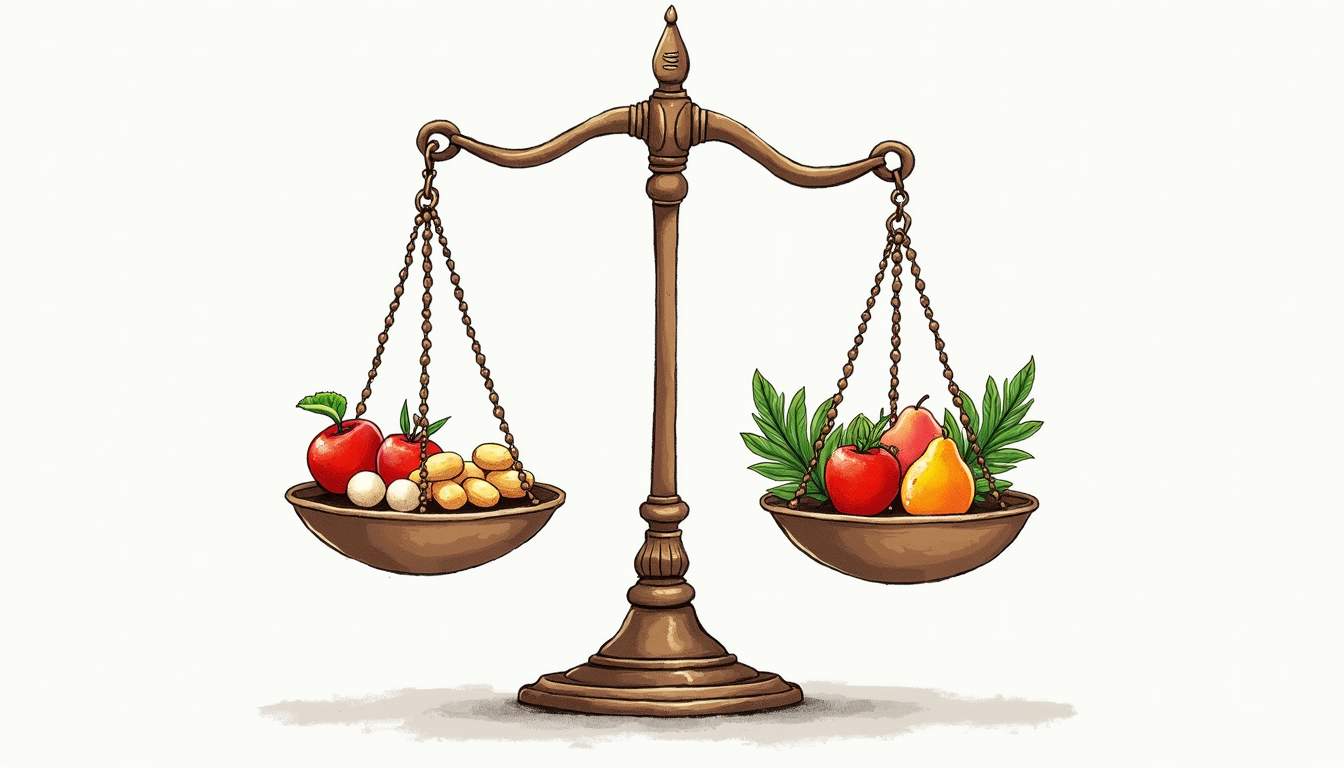Hormonal balance plays a crucial role in maintaining overall health and wellbeing for both men and women. With the increasing prevalence of hormonal imbalances attributed to lifestyle choices, stress, and environmental factors, understanding the essential vitamins that support hormonal health is more important than ever. This article delves into the significance of hormonal balance, the signs of imbalance, and the vitamins that can help restore harmony in the body.
Hormonal balance is crucial for health and wellbeing in both men and women. Essential vitamins like Vitamin D, B Complex, E, and C significantly support hormone regulation. Women benefit specifically from omega-3 fatty acids, magnesium, and herbal supplements like Vitex. Men benefit from Vitamin D, zinc, and B vitamins to maintain optimal testosterone levels and hormonal health.
Understanding Hormonal Balance and Why It's Essential
Hormones are chemical messengers that regulate various physiological processes in the body, including metabolism, growth, mood, and reproductive functions. Achieving and maintaining hormonal balance is vital for optimal health, as even minor fluctuations can lead to significant changes in physical and emotional wellbeing.

When hormones are in balance, individuals often experience improved energy levels, better mood stability, and enhanced cognitive functions. Conversely, hormonal imbalances can result in a myriad of health issues, including weight gain, fatigue, anxiety, and reproductive disorders, underscoring the importance of understanding and addressing these imbalances.
How Hormones Impact Your Health
The impact of hormones on overall health cannot be overstated. Hormones, such as estrogen, testosterone, cortisol, and insulin, play critical roles in regulating bodily functions. For instance, estrogen and testosterone are vital for reproductive health, while cortisol is essential for managing stress responses.
Moreover, hormones influence metabolic processes, including how the body utilizes energy and stores fat. An imbalance in these hormones can lead to metabolic disorders, weight gain, and increased risk of chronic diseases, such as diabetes and heart disease. Thus, maintaining hormonal balance is essential for promoting longevity and quality of life. Additionally, hormonal health can also affect skin conditions, hair growth, and even digestive health, as hormones interact with various systems in the body, highlighting the interconnectedness of our physiological functions.
Recognizing Symptoms of Hormonal Imbalance
Recognizing the signs of hormonal imbalance is the first step towards addressing the issue. In women, symptoms may include irregular menstrual cycles, mood swings, hot flashes, and sleep disturbances. These symptoms often arise during significant life changes, such as puberty, pregnancy, or menopause.
Men, too, can experience hormonal imbalances, often characterized by fatigue, decreased libido, mood fluctuations, and muscle loss. Both genders may also notice changes in weight, skin health, and energy levels, which can signal the need for a closer examination of their hormonal health. Furthermore, lifestyle factors such as diet, exercise, and stress management play a crucial role in maintaining hormonal balance. For example, a diet rich in whole foods, healthy fats, and adequate protein can support hormone production, while regular physical activity helps to regulate insulin and cortisol levels, promoting a more stable hormonal environment.
Key Vitamins for Supporting Hormonal Health
Incorporating specific vitamins into the diet can significantly support hormonal health. While a balanced diet is crucial, certain vitamins have been identified as particularly beneficial for maintaining hormonal balance. Here are some of the key vitamins that play an essential role in hormone regulation.

Vitamin D: The Hormone Regulator
Vitamin D is often referred to as the "sunshine vitamin" due to its synthesis in the skin upon exposure to sunlight. This vitamin is vital for numerous bodily functions, including hormone production. Research has shown that adequate levels of vitamin D can help regulate sex hormones, such as estrogen and testosterone, which are critical for reproductive health. Furthermore, vitamin D receptors are present in various tissues throughout the body, indicating its broad influence on cellular function and health. Low levels of vitamin D have been associated with various hormonal disorders, including polycystic ovary syndrome (PCOS) and thyroid dysfunction, underscoring the importance of maintaining optimal levels.
B Vitamins: Crucial for Stress and Energy
On the other hand, B vitamins, particularly B6, B12, and folate, are essential for energy metabolism and the synthesis of neurotransmitters that affect mood and stress levels. These vitamins support the adrenal glands, which produce hormones that manage stress responses. A deficiency in B vitamins can lead to increased stress and hormonal imbalances, making it crucial to ensure adequate intake. Additionally, B vitamins play a role in the metabolism of amino acids, which are the building blocks of proteins and hormones. This connection highlights the importance of a diet rich in B vitamins for overall hormonal health and emotional well-being.
Vitamins E and C: Antioxidant Protection for Hormones
Vitamin E is a powerful antioxidant that helps protect cells from oxidative stress, which can disrupt hormonal balance. It plays a role in the production of sex hormones and supports reproductive health in both men and women. Additionally, vitamin E has been linked to improved fertility and reduced symptoms of menopause in women. Its ability to enhance blood circulation may also contribute to better hormone delivery throughout the body, further supporting reproductive and overall health. Foods rich in vitamin E, such as nuts, seeds, and green leafy vegetables, should be included in the diet to harness these benefits.
Vitamin C, another potent antioxidant, is essential for the synthesis of hormones, including cortisol and adrenaline. It also supports the immune system and helps combat stress, which can otherwise lead to hormonal imbalances. Moreover, vitamin C is crucial for the production of collagen, which maintains the integrity of blood vessels and tissues, ensuring that hormones can be effectively transported to where they are needed. Ensuring adequate intake of these vitamins can provide essential support for hormone production and overall health. Citrus fruits, bell peppers, and berries are excellent sources of vitamin C, making it easy to incorporate this vital nutrient into daily meals.
Gender-Specific Vitamins for Hormonal Balance
While certain vitamins are beneficial for both men and women, there are gender-specific needs that should be considered when addressing hormonal health. Understanding these differences can help tailor supplementation and dietary choices to better support hormonal balance.
Essential Supplements for Women's Hormonal Health
Women often face unique hormonal challenges throughout their lives, from menstrual cycles to pregnancy and menopause. Supplements such as omega-3 fatty acids, magnesium, and specific B vitamins can be particularly beneficial. Omega-3s help reduce inflammation and support hormonal balance, while magnesium plays a role in over 300 biochemical reactions in the body, including hormone regulation.
Additionally, herbal supplements like chaste tree berry (Vitex) and black cohosh have been traditionally used to alleviate symptoms associated with hormonal fluctuations, such as PMS and menopause. These natural remedies can complement vitamin intake and promote overall hormonal health in women. Furthermore, vitamin E is another essential nutrient that can support women's hormonal health by acting as an antioxidant, potentially reducing oxidative stress during hormonal shifts. This can be particularly important during menopause, where fluctuations in estrogen levels can lead to increased oxidative damage.
Important Vitamins for Men's Hormonal Health
Men's hormonal health is often centered around testosterone levels, which can decline with age or due to lifestyle factors. Key vitamins that support testosterone production include vitamin D, zinc, and B vitamins. Zinc, in particular, is crucial for testosterone synthesis and can help improve libido and overall energy levels.
Lifestyle Tips for Maintaining Hormonal Balance
Moreover, lifestyle factors such as diet, exercise, and stress management play a significant role in maintaining hormonal balance in men. Incorporating strength training and a diet rich in whole foods can further enhance hormonal health and support testosterone levels. Additionally, the role of omega-3 fatty acids cannot be overlooked for men either; these fats not only support heart health but also have been linked to improved testosterone levels and mood regulation. Regular consumption of fatty fish or plant-based sources of omega-3s can be a simple yet effective way to bolster hormonal health.
In conclusion, achieving hormonal balance is essential for both men and women to maintain optimal health and wellbeing. Understanding the role of vitamins in this process can empower individuals to make informed dietary choices and consider supplementation when necessary. By prioritizing hormonal health, individuals can enhance their quality of life and reduce the risk of chronic health issues.
Explore our premium range of methylated multivitamins and supplements for hormonal balance and overall wellness here

Share:
Ashwagandha Duration Guide: How Long to Use for Stress Relief, Sleep, and Hormonal Balance
Liquid vs. Powder Collagen: Which is More Effective for Skin and Joint Health?